Yvone Duarte: From White to Coral
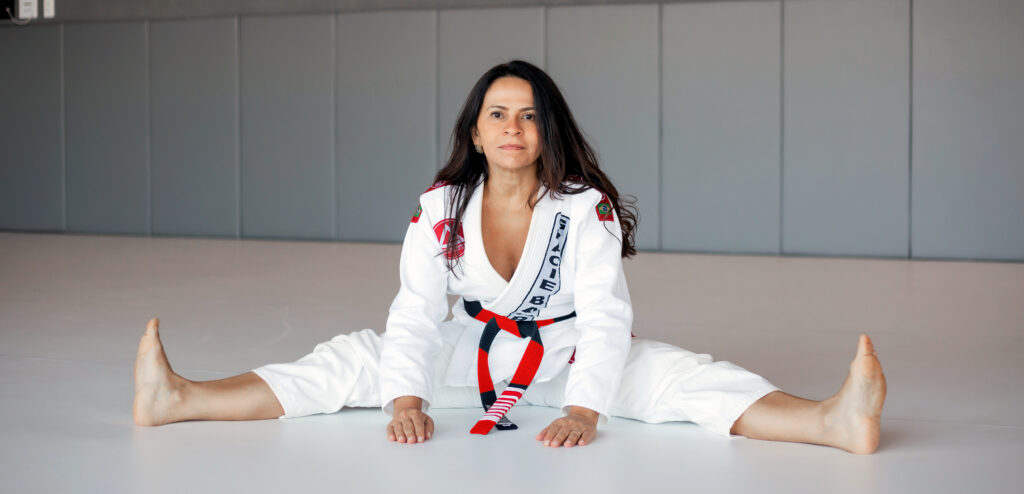
Inspiration, trailblazer, pioneer, legend. She is the original Jiujiteira with a remarkable journey of over 40 years dedicated to Jiu-Jitsu as an athlete, woman, and citizen. Yvone Duarte. There is no other like Mestra Yvone. The first woman to receive a black-belt in Brazilian Jiu-Jitsu and now the first awarded the legendary coral belt, Yvone will forever hold an important place in the history of Brazilian Jiu-Jitsu. She is the epitome of a woman ahead of her time. Yvone broke barriers and paved the way for all women in Jiu-Jitsu, and created a profound legacy for generations to come.
Story: Evelyn Sutton | Photos: Pedro Hackbart
Yvone Magalhães Duarte was born in 1963 during a time when women were not prevalent in sports. She grew up in the small northern city of Boa Vista in the state of Roraima, Brazil. An athletic child, Yvone participated and won medals in a variety of sports during her school years. Her athletic ambitions would forever change at 14 years old when she was first introduced to her life partner, Brazilian Jiu-Jitsu and a love story for the ages began.
At the end of the 70’s, Yvone moved to Rio de Janeiro to continue her studies. Unlike Boa Vista, Rio was a big city and offered many University options. Her brothers were already living in the Cidade Maravilhosa, The Wonderful City as Rio is affectionately nicknamed by Brazilians. There she took courses in Communication and Social Services. Currently at 58 years old, Yvone is back in school, completing her Psychology degree, proving age will never define her. She enjoys studying and learning new things. In this phase of her life, Yvone intends to integrate her studies in Psychology with her passion for teaching.
Upon her arrival, the megametropolis was so much bigger, louder, and more intimidating than what she was used to, Yvone felt an immediate loss of freedom and a sense of being a prisoner in her own house. She went from spending time outdoors, hanging out with friends in Boa Vista to spending long hours inside her apartment in Rio. Her brother, Pascoal Duarte, was the one who suggested she tried BJJ. A Jiujiteiro himself, Pascoal invited her to class. To Yvone, Jiu-Jitsu wasn’t just a new sport to try out but it also offered the social life and community she was looking for. At the time, there weren’t many BJJ practitioners at all, the community was a small tight-knit family.
Yvone began attending tournaments to watch her brother compete. Some of these competitions became classics and shaped the history of Brazilian Jiu-Jitsu. At the very onset of her journey, Yvone watched Rickson Gracie fight Sergio Penha in one of the most celebrated Jiu-Jitsu matches ever, and Rolls Gracie, one of the greatest athletes of all times, compete. Sitting in the audience, Yvone was drawing inspiration and learning from athletes who would become the greatest names in the history of the sport during what has been called by Royler Gracie, “The Golden Years of Brazilian Jiu-Jitsu.”
“I watched classic Jiu-Jitsu battles where you would see a lot of open guard, sweeps, and hooks. It was exciting to be part of the Brazilian Jiu-Jitsu community in Rio at the time.”
As she started taking classes, Jiu-Jitsu wasn’t necessarily something she felt naturally adept at. Yvone was more of a team player and Jiu-Jitsu was very different from any other sport she had been involved with but a comment from her brother resonated with her: “Don’t think you have to be strong to be a Jiu-Jitsu athlete, what you have to be is technical. You already have two things in your favor: your flexibility and your speed. Not to mention, you are already a competitor.”
She joined her brother’s gym in Copacabana where Sergio Penha also trained under the tutelage of Master Oswaldo Alves. Surprisingly, she wasn’t the only woman at her gym, there were about three other girls. And after six months, the small group of Jiujiteiras grew to ten women. Feeling confident in their movement and basic knowledge of the game, the ladies wanted to compete and put their Jiu-Jitsu to the test. Having competed in many different sports most of her life, competing in Jiu-Jitsu was a natural progression for Yvone. However, there were no Jiu-Jitsu competitions for women back then.
Determined to change things, the ladies got organized under Yvone’s fiery leadership and decided it was time to demand a division for women to compete in BJJ. They submitted a formal request to Rickson Gracie, president of the Jiu-Jitsu Federation in Rio de Janeiro at the time. Rickson forwarded their request to Marcelo Behring, brother of Sylvio Behring and secretary of the Federation and asked him to setup a meeting with Master Hélio Gracie to find out his thoughts on creating a division exclusive for women to compete in Brazilian Jiu-Jitsu. Hélio Gracie was in favor.
With Hélio’s blessing, the ladies went on to organize the very first women’s Brazilian Jiu-Jitsu tournament in 1985. The event was a success, the Jiujiteiras had their own mat space, referees, medals, certificates and even commemorative t-shirts were made to celebrate the historic occasion.
Although the women had authorization from Hélio Gracie to compete, women divisions weren’t yet officially part of IBJJF. Not satisfied, Yvone, a blue belt then, started a campaign to get the women’s division sanctioned by the Jiu-Jitsu Federation and officially become part of the main BJJ competition circuit.
“Nowadays, we look back and we can see what a turning point that was for women in Brazilian Jiu-Jitsu. It forever changed our access to the opportunities we have in the sport. It was a milestone”, says Yvone.
Yvone went on to compete in every belt, except brown, winning titles along the way, and opening doors for generations of female athletes that came after her.
She made history when she became the first woman to receive a black-belt in Brazilian Jiu-Jitsu. She had decided to wait until then to begin teaching. Once she became a Professora, she put together her own all-women competition team naming it “Team Black Belt” and later on, “Team Yvone Duarte”.
Of her generation, Yvone is one of the few women that made it all the way to black-belt, and now even further as a coral belt. “As a woman, it’s very challenging to keep yourself in a sport for a long period of time. Not only in Jiu-Jitsu, Judo or martial arts, in any sport, women have a multitude of daily demands that pull us out of training. Our responsibilities as mothers, wives, professionals can often be overwhelming. Being able to find balance between Jiu-Jitsu and motherhood, career, and family is not always easy”, she explains.
“Jiu-Jitsu was created to bring people better quality of life, improved health and confidence. We must not fall into the trap of emulating the monsters Jiu-Jitsu is meant to defeat. Any form of abuse goes against everything Jiu-Jitsu is and represents.”, Yvone declares.
A champion of ALL women
In the 90’s, Yvone moved to Brasilia, capital of Brazil and her career as a Professora blossomed. She began teaching at four different gyms and at the local police academy, training new recruits in Jiu-Jitsu self-defense techniques. A trailblazer, Yvone was the first woman to teach martial arts to police officers.
More recently, for the last five years, Mestra Yvone has been involved in a variety of social programs designed to empower women and other marginalized groups. Brazil is one of the most violent countries in the world, with women, gays, trans and bisexuals on top of the victimization list.
Being a versatile martial art, it was clear to Yvone that Jiu-Jitsu techniques could be adapted to create a self-defense program she could teach to anyone. She presented her ideas to the University of Brasilia, one of the largest and most respected educational institutions in the country. Yvone combined her knowledge in psychology and as a Jiujiteira to develop a program that would teach women and other high risk groups to defend themselves against aggressors, build up confidence, increase self-esteem, and provide emotional support.
The program developed includes not only Jiu-Jitsu classes, but also group therapy where victims can talk about their experiences and receive the emotional and psychological help they need. Group sessions are a big component of the success of the program. The goal of the sessions is to create solidarity and help understand the emotional and psychological impact victims of violence suffered.
The self-defense techniques were designed with real life scenarios in mind, based on attacks reported by thousands of women, such as being attacked in a public restroom. Mestra Yvone asked questions: how did the attack take place? Was it from behind? Did the attacker try to strangle you? Were you pushed to the floor? Did the attacker have a weapon?
With this information, Yvone put together a comprehensive curriculum. The Department of Public Safety in Brasilia also got involved and Yvone was able to interview women from the local community asking them what dangerous situations they have found themselves in or are afraid of. The answers were alarming. Women reported being afraid of walking from their homes to the bus stop, and worried about their surroundings when getting into their cars. There was also a considerable amount of domestic violence cases where women were nearly strangled by a significant other mounted on them. Yvone was determined to help these victims.
Yvone’s program was implemented at the University of Brasilia and continues to grow and serve the community. The success brought in other universities and organizations from all over the country that wanted to incorporate Yvone’s self-defense and women’s empowerment program into their own curriculum. One of these organizations is ON, the United Nations. The United Nations is an intergovernmental organization aiming to maintain international peace and security. It is the world’s largest and most familiar international organization. Once more, Yvone blazed the way with excellence. For the first time ever, the United Nations invited Professora Yvone to teach a self-defense course to female operators and all it’s affiliate agencies who are deployed to international areas of conflict and civil unrest. Once a year, Yvone offers in-depth training to better equip ON’s female agents as they prepare to go on missions. Promoting self-defense and women’s empowerment through Jiu-Jitsu is Yvone’s current focus in life. “Jiu-Jitsu is a powerful tool for women’s empowerment and inclusion of groups who are ostracized in society.”
With the current changes in the cultural and social panorama, trans women were a risk group Yvone wanted to reach out to and include in her women’s empowerment program. Initially, there were concerns from the University administration of possible conflicts between cis women and trans women. But in Yvone’s opinion, she didn’t want to separate them, to her it’s about inclusion not segregation. “We can not repeat the mistakes of the past, our goal is to promote inclusion and Jiu-Jitsu can be a tool for bringing people together.”
Under her guidance, Yvone sets up the class, establishes the tone and direction to accommodate all the groups there represented. “We live in a plural, culturally rich and diverse society. The key is to focus on what we have in common instead of what separates us.” With that mentality, Yvone creates a classroom environment where all women find commonality, support, shared experiences and learn to protect themselves against common aggressors instead of fighting each other.
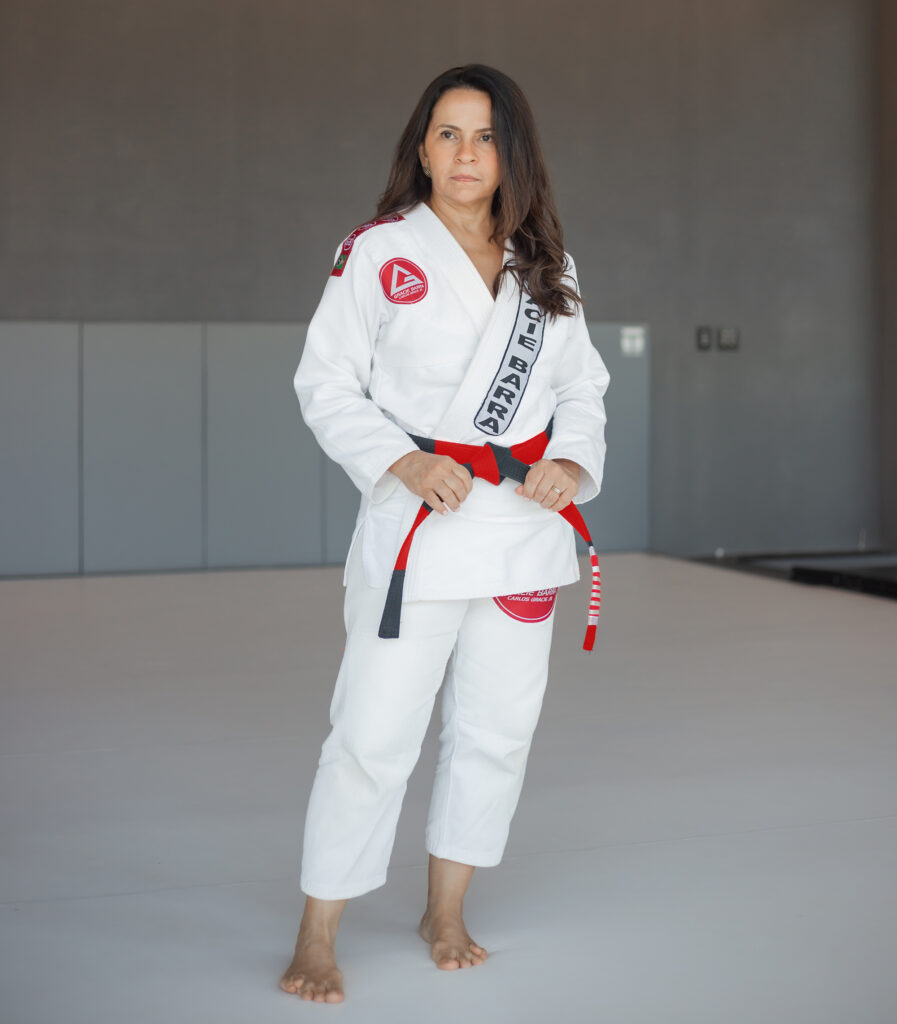
A Feminine Perspective
Yvone believes students who were victimized and suffer from PTSD need more dedicated attention and emotional support as they begin their Brazilian Jiu-Jitsu journey. A woman who was victimized or lives under the constant threat of emotional, psychological and physical abuse will have very different learning needs from a student who is in class getting ready to compete at a tournament. “As an instructor, we must be aware of our students emotional responses when we are teaching class. A certain position you are showing or something you say can cause someone who has experienced violence to feel victimized all over again. It’s crucial that professors and coaches give the student the space they need to regain control, and create a safe and supportive gym environment where all students can learn.”
Talking about the trauma is something that can be offered if the student wishes to share their experience but Yvone cautions that is a conversation that should never be forced or imposed. “Many women who have been victimized, do not want to talk about their experience at all. And that must be respected. The instructor must be able to show a professional degree of compassion and guidance when working with students who are dealing with PTSD. The fact this student was already able to overcome the fear to come to the gym and be present in class is a significant victory on their path to healing and should be considered as such. When a student is given an environment to learn Jiu-Jitsu where they feel safe, a relationship of trust between the student, the coach and teammates on the mats begins, only then this student is able to develop their own mechanisms of empowerment, move past the trauma and regain their sense of personal power.”
Yvone offers training courses for coaches who want to gain more knowledge on how to work efficiently with students recovering from trauma. The truth is, the traditional Jiu-Jitsu instructor doesn’t receive any training on how to work with victims of violence.
From the start, Jiu-Jitsu was taught from a masculine point of view. As a Jiujiteira, Yvone brings a feminine perspective to the gentle art. “Coming up, there weren’t even kimonos (gis) for women. We had to wear gis designed for men, they were big, bulky, not flattering or adequate for a female’s body shape and movements”, she adds.
Even in the uniform, Jiu-Jitsu has evolved to better serve this new fast-growing segment of Jiujiteiras. How Jiu-Jitsu is taught also needs to evolve to include both male and female perspectives.
“When teaching a class is important to speak and listen to your audience. When you are teaching a competition class for instance, there are no breaks, if a student is tired or falling behind, you push them, it’s tough, it’s military style conditioning. Women empowerment classes require a different approach, different focus, and a specific vocabulary. This is not a class where you are going to push your students to the edge of their limits as you would in a competition class. Jiu-Jitsu is versatile and adaptable, we can modify the class to allow it to be an effective tool in empowering people. Jiu-Jitsu is always the same but how we teach students who come for the sport, and those who seek self-defense to regain their personal power and never be a victim again differs.”
From Under the Tatami
It’s almost impossible to talk about women’s empowerment through sports and martial arts without discussing the problems of sexual harassment and assault in the athletic community. Yvone offers insight and ideas on implementing solutions to combat the issue:
“We can not condone any kind of violence in Jiu-Jitsu. We need to confront the issues and not allow our Jiu-Jitsu community to reproduce the situations of violence and harassment we are fighting against. We achieve that through educational campaigns, better resources and training for coaches and professors, increased awareness, and exposure of crimes committed in the community. We must never hide any form of abuse under the tatami. We must have the maturity to deal with accusations head on, investigate and involve the authorities when necessary. Jiu-Jitsu is not a safe haven for predators. It’s up to us to ensure that. A predator in our community must be dealt with like an enemy in a fight, and just like in a Jiu-Jitsu match, we are going to control and submit these predators, they are enemies of our community and must be defeated. Jiu-Jitsu as a whole loses too much if we sweep these issues under the tatami.”
In her opinion, we should have guidelines set forth by the Jiu-Jitsu Federations that establishes the consequences for convicted abusers in our community, particularly those in positions of leadership such as coaches and professors who take advantage of their authority to indoctrinate minors, violate the code of trust between teacher/student and are proven guilty of sexual misconduct or other violent charge. The consequences would include banishment from the community and not being allowed to teach Jiu-Jitsu again. This is common practice in other professional segments such as the medical sector. If a doctor abuses their position and commits an act of violence, that doctor loses their privilege to practice medicine. The same can be true in the Jiu-Jitsu community. If a professor abuses his position and authority to violate, harass, or commit any other crime towards a student, that professor loses his privilege of teaching Jiu-Jitsu, and participating in the community. “Why should it be any different in Jiu-Jitsu?”, Yvone says.
Every aggressor is a coward. It’s an incredible act of cowardice when you consider the combination of factors involved, first in the case of the abuser being a black-belt professor, someone who holds a position of authority in the hierarchy of Jiu-Jitsu and the application of martial arts technique. Then, on top of that, there’s the fact that the violence is often committed against a woman or young girl, someone who is in a physical disadvantage, considering in most reported cases the abuser was a male who has the strength and technical knowledge to easily overpower his victim.
“Jiu-Jitsu was created to bring people better quality of life, improved health and confidence. We must not fall into the trap of emulating the monsters Jiu-Jitsu is meant to defeat. Any form of abuse goes against everything Jiu-Jitsu is and represents.”, Yvone declares.
Yvone wants social justice, protection and solidarity for our community of Jiujiteiras. “The very essence of Jiu-Jitsu is to transform a fragile individual into someone capable of standing at equal stature to someone who is strong.”
A Lifelong Commitment
A career-driven woman, Yvone participated in Brazilian politics working at the National Congress, the legislative body of Brazil’s federal government as assistant to Fernando Gabeira and other deputies for 15 years. She also served as Coordinator of the National Board of Psychology for 10 years. Even with her busy work schedule and active family, Yvone was able to find balance between her personal and athletic life. Yvone considers Jiu-Jitsu her life partner and she is grateful for everything BJJ gave her. “Friendships of 40 years were formed on the mats, Jiu-Jitsu gave me a family, it gave me strength to face adversities, it gave me the possibility to live my very best life.”
She shares how ingrained Jiu-Jitsu is in her personality by telling us how she would employ BJJ’s strategic thinking to her business meetings: “What argument do I need in this situation to pass his guard?”
Yvone’s Jiu-Jitsu career flourished greatly because of her constant dedication and commitment to the practice, which is truly admirable. It’s a relationship that has brought her many joys. “I never abandoned Jiu-Jitsu and Jiu-Jitsu never abandoned me.”
When she first received the news from the Brazilian Jiu-Jitsu Federation that she was going to be awarded a coral belt, Yvone was emotional. At the same time, she pondered why is she the exception. Why have so many women not been able to achieve the same level of accomplishment in the sport? She believes that is mostly due to the fact there are still many social barriers preventing women from being able to fully train and dedicate themselves to Jiu-Jitsu. The amount of responsibilities imposed by society and also, self-imposed, is something that needs to be re-evaluated. “The illusion of the super woman, the super mom, is a fantasy. We need to be realistic about the amount of hours we have in a day, and how thin we are spreading ourselves to perform at a high level in everything. We are humans. We don’t have to be superheroes. When we take upon ourselves to wear a cape, at the end of the day, we often feel drained and depleted. How are we going to be able to train if we are mentally and physically exhausted?”, she asks.
“I never abandoned Jiu-Jitsu and Jiu-Jitsu never abandoned me.”
Yvone hopes that her journey and latest achievement of becoming the first woman to receive a coral belt in BJJ will motivate and inspire other women to not give up their Jiu-Jitsu journey and to pursue their dreams. “Don’t abandon Jiu-Jitsu because of the demands of a busy life.”
For the future, Mestra Yvone plans on continuing to offer specialized training to instructors, and develop more programs for women’s empowerment and social inclusion through Jiu-Jitsu. She also wants to personally train her little grandson Felipe, who has already been on the mats playing around with his famous grandma, to become a world champion.
As we were getting ready to wrap up the interview, Yvone recalled a moment of her life when she first moved to Brasilia and fought two women who challenged her, one of them on the streets: “I always trained in the gi, I had never fought nogi before but this woman who trained Capoeira challenged me for a match, so I did it. That was my first nogi experience. Not long after that, another woman who was a boxer challenged me for a fight in the middle of the street. I took her to the ground and we hit the pavement. That happens sometimes, people want to see if you are really a champ and if Jiu-Jitsu really works. She certainly found out that day just how effective Jiu-Jitsu is, hahaha.”
Just another day in the life of a legend.
Follow Yvone Duarte: @yvoneduartedefesa
Q&A with Yvone Duarte
JM: Have you noticed a difference or evolution in Jiu-Jitsu from when you started training?
YD: Brazilian Jiu-Jitsu is very dynamic and will continue to evolve over time but it will never lose it’s essence and philosophy. I watch competitions and I see girls doing exactly the same positions and techniques I was doing 40 years ago. The same game we would play back then is being played now. There are innovations, but the essence of Jiu-Jitsu is always present.
JM: What do you wish for the future of women’s Jiu-Jitsu?
YD: Nowadays, I see many talented young women who display amazing guard games and I am happy to see that. For the future, I want to see more opportunities, more equality and more women doing BJJ. I want Jiu-Jitsu to become even more feminine. I want equality for women when it comes to respect, training, competition and equal pay for instructors and professional athletes in the sport.

Our printed magazine is full of extraordinary women with extraordinary stories, get your printed copy via mail today >


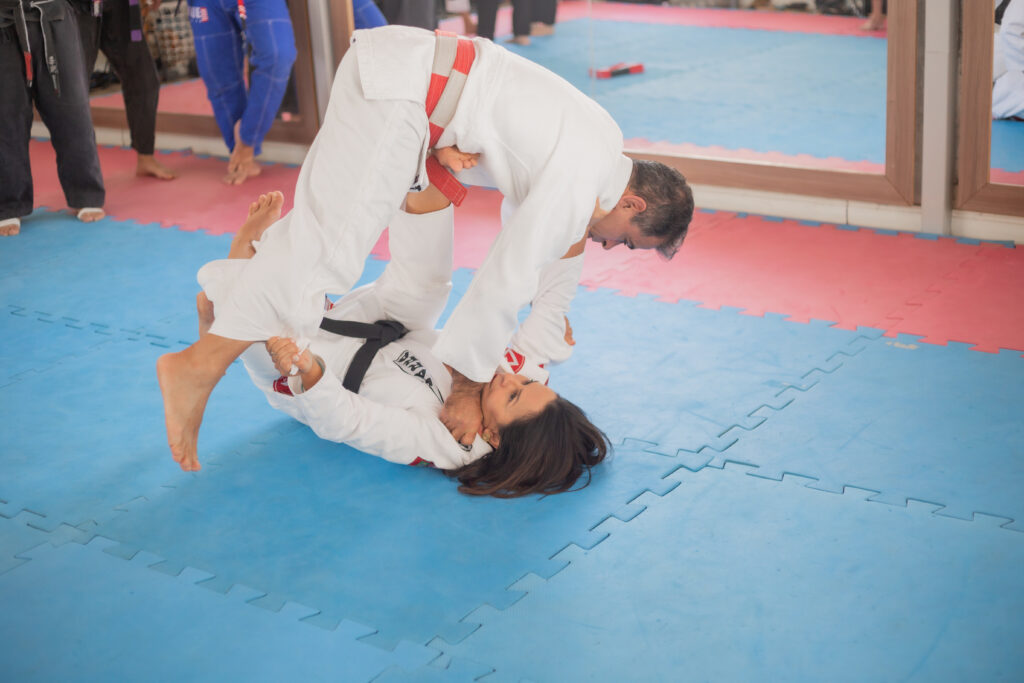
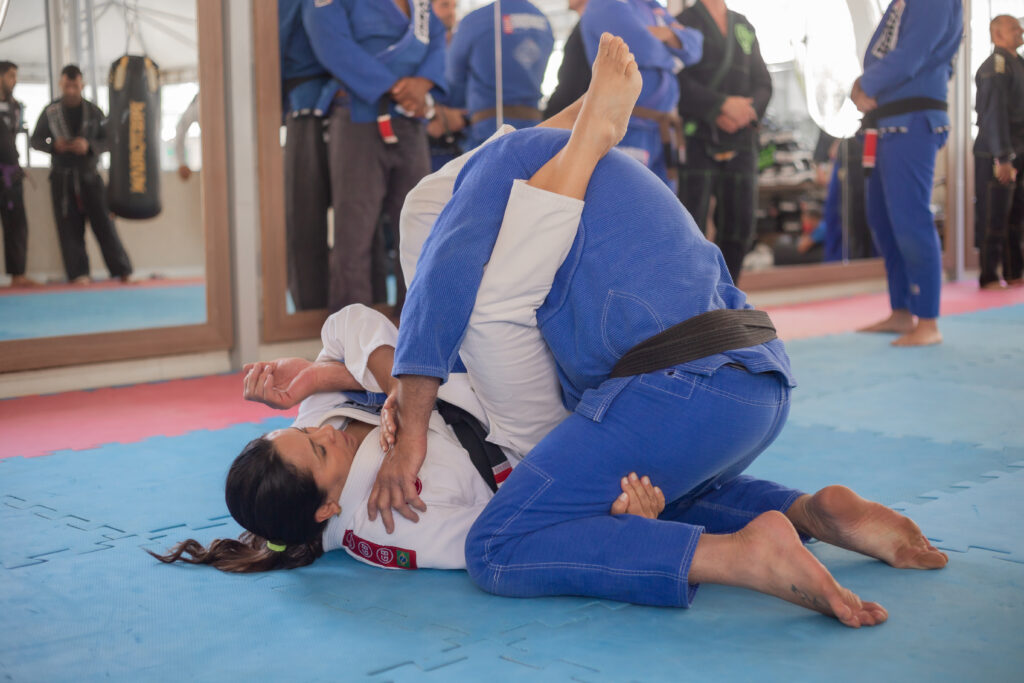
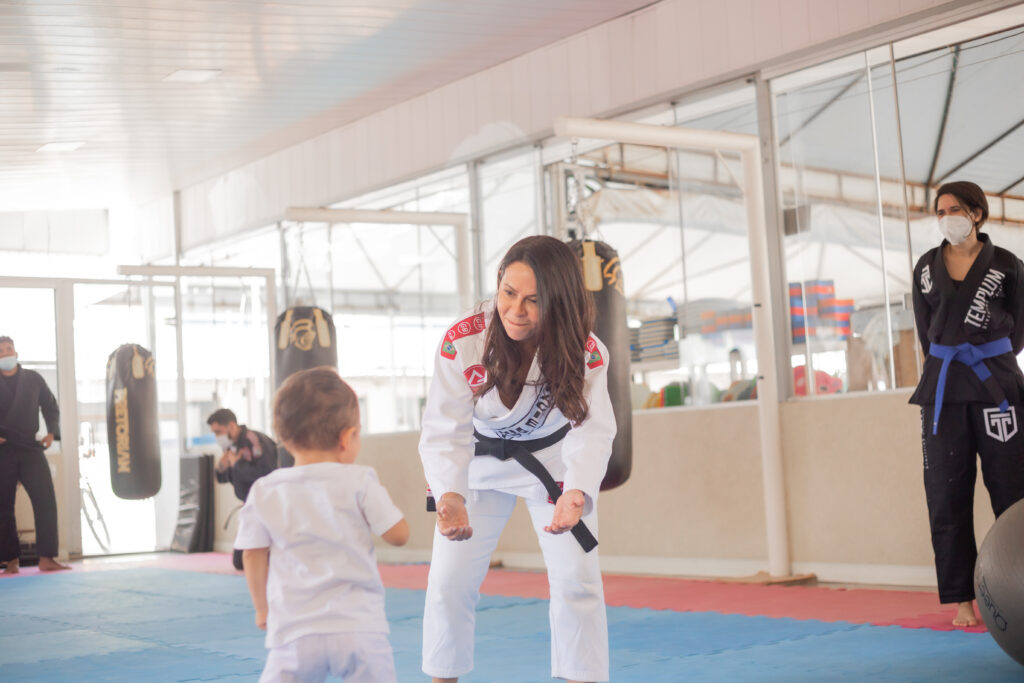
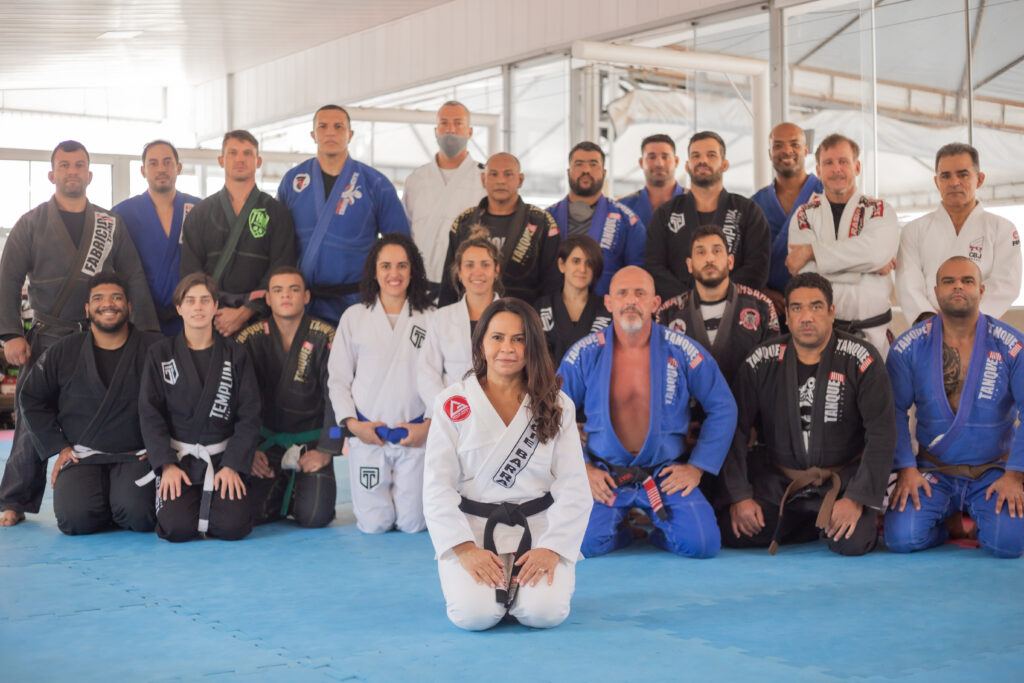
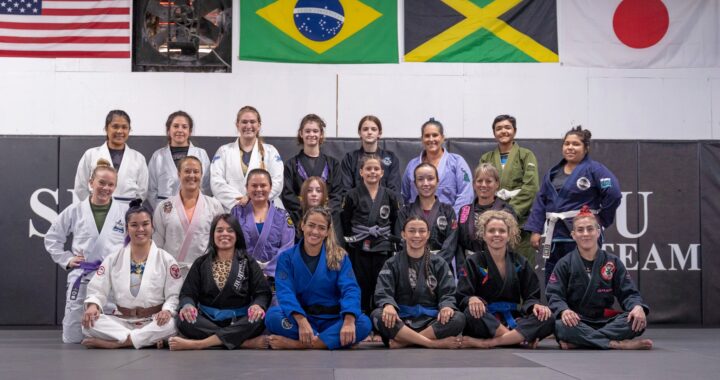 The Jiujiteira Sisterhood
The Jiujiteira Sisterhood  ADGS Rome: Jiujiteiras Shine in the Land of the Colosseum
ADGS Rome: Jiujiteiras Shine in the Land of the Colosseum 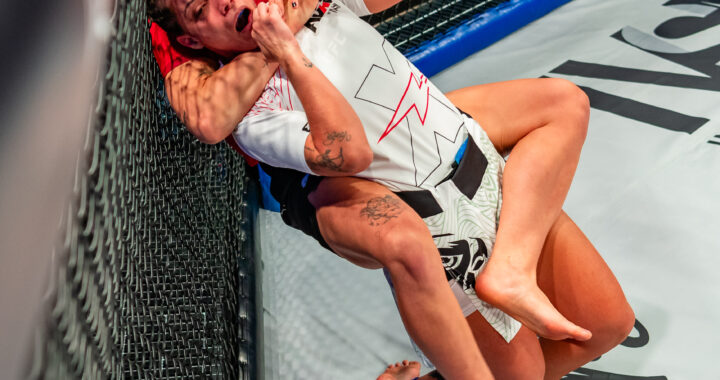 Ffion Davies: Unmatched Dominance at ADXC2
Ffion Davies: Unmatched Dominance at ADXC2 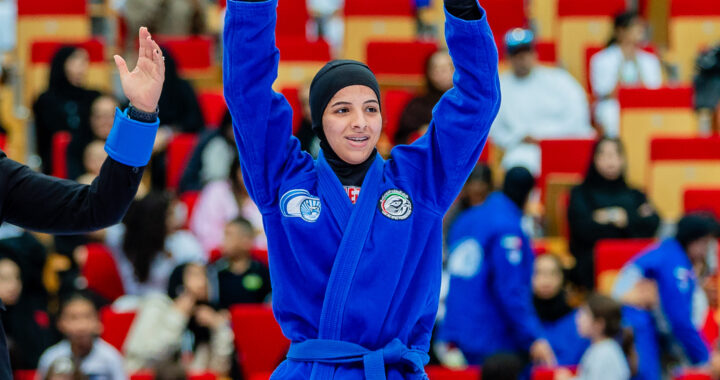 Winners of Mother of the Nation Jiu-Jitsu Cup are celebrated in Abu-Dhabi
Winners of Mother of the Nation Jiu-Jitsu Cup are celebrated in Abu-Dhabi 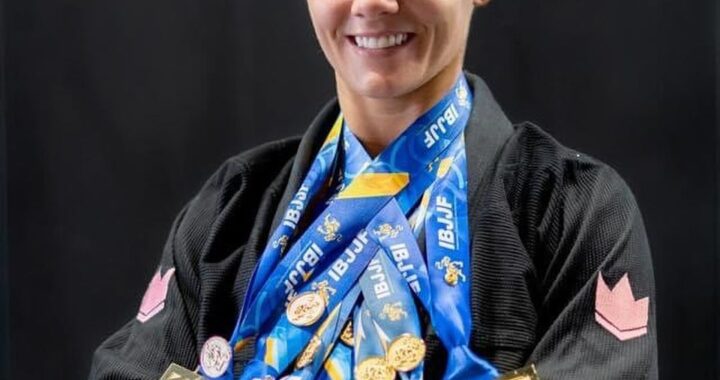 Maggie Grindatti Hangs Up the Gi: A Transition from BJJ Athlete to Fitness Coach
Maggie Grindatti Hangs Up the Gi: A Transition from BJJ Athlete to Fitness Coach 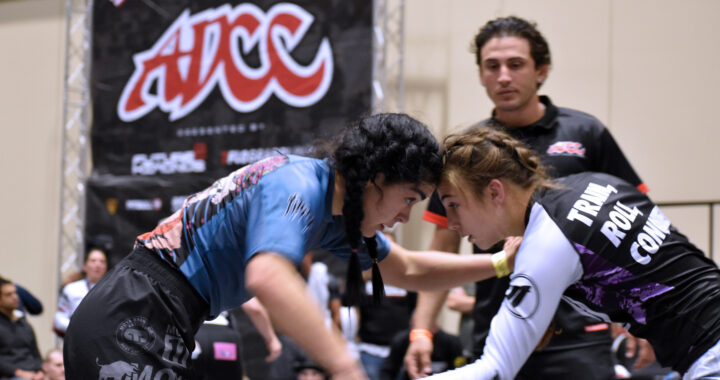 Jiujiteiras deliver intense battles and remarkable performances at ADCC Orlando Open
Jiujiteiras deliver intense battles and remarkable performances at ADCC Orlando Open 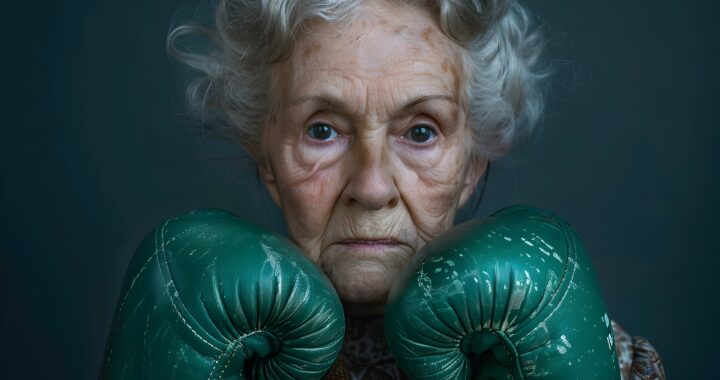 Father Time is Undefeated
Father Time is Undefeated 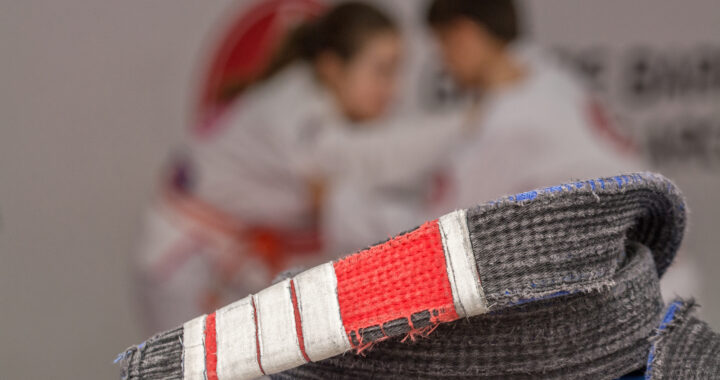 Advice in the Ranks- From White to Black
Advice in the Ranks- From White to Black